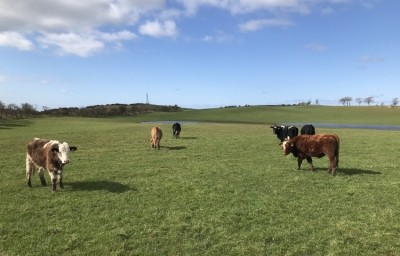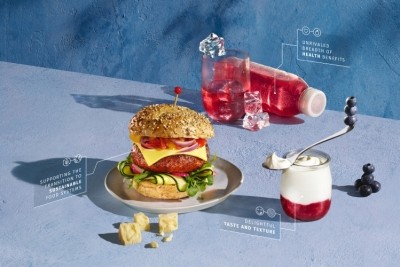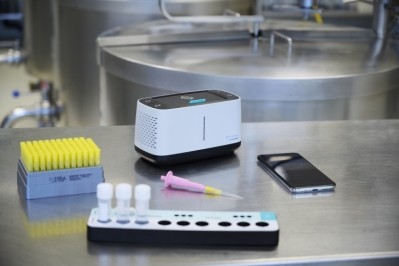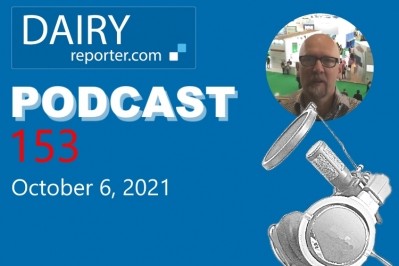DSM plans new production site for methane-reducing Bovaer in Scotland
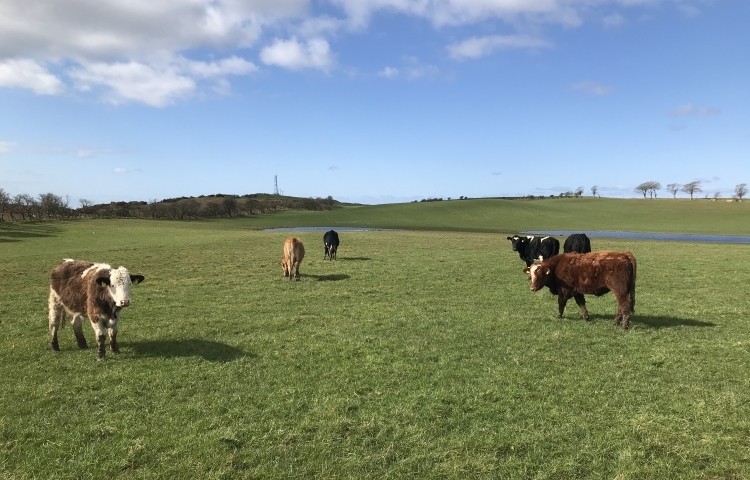
The development is supported by Scottish Enterprise.
Reducing methane emissions is crucial to reach the Paris Agreement target of maximum 1.5 degree warming, especially since methane’s warming effect is shorter lived and much more potent than carbon dioxide.
Experts at COP26 have emphasized the great impact additional focus on methane emission reduction can have, which was also expressed in the recently-announced global pledge aiming at reducing methane emissions by 30% by 2030. Amongst other things, methane is emitted from cows – more than 50% of emissions from milk production comes in the form of enteric methane emission.
Bovaer is a feed additive for cows that reduces enteric methane emission by approximately 30% for ruminants.
In September 2021, DSM received full regulatory approvals in Brazil and Chile for the Bovaer feed additive. DSM has available initial commercial product volumes for near term market development. To prepare for further scale up in the next years, engineering for a new large plant in Dalry has started, which is targeted to be started up in 2025. DSM’s Dalry manufacturing site has been in operation for more than 60 years, and produces micro-nutrients. It is also the only western producer of vitamin C.
Geraldine Matchett and Dimitri de Vreeze, co-CEOs of DSM, said, ”First of all we are pleased with the Scottish government’s support of the buildup of our production capacity of Bovaer, particularly within the context of COP26, where the importance of fast climate action through reduction of methane emissions is emphasized again. We are looking forward offering a scientifically proven effective solution to the challenge of methane emissions by farming. As food systems and climate crisis are intrinsically linked, addressing the challenge of sustainable animal farming for a healthy planet is pivotal.”
Nicola Sturgeon, First Minister of Scotland, said, “Methane reducing feed additives are a crucial part of the solutions that the agriculture sector needs to deploy towards achieving climate ambitions. This multi-million-pound investment will make Scotland the home of this innovative product and highlights that Scotland is leading the way in delivering a net zero future.”
Scottish Enterprise’s managing director, Linda Hanna, said, “Royal DSM’s Project Bovaer has the potential to be a gamechanger for the world’s net zero ambitions and I am delighted that Scotland was chosen as the ideal location for this project. Alongside our partners, Scottish Enterprise worked closely with Royal DSM to build a strong relationship and provide support to help them choose Dalry as the target site for this global manufacturing opportunity. As we support sustainable economic recovery, this investment by Royal DSM provides a real boost for Scotland’s economy. It also very much underlines the message we are sharing with the world: that Scotland is open for business.”
DSM recently launched a series of new commitments aimed to address urgent societal and environmental challenges linked to how the world produces and consumes food by 2030, the Food System Commitments. These cover three areas where the company believes it can make the greatest positive impact together with its business partners: Health for People, Health for Planet and Healthy Livelihoods.
One of DSM’s commitments is to enable double-digit on-farm reduction of livestock emissions by 2030. DSM said it can help make a sizeable reduction in emissions from farms by changing the feed that animals eat every day. One quarter of a teaspoon per cow per day of Bovaer will reduce enteric methane emission by approximately 30% - enabling a 10-12% reduction in greenhouse gas emissions per kilo of milk.
